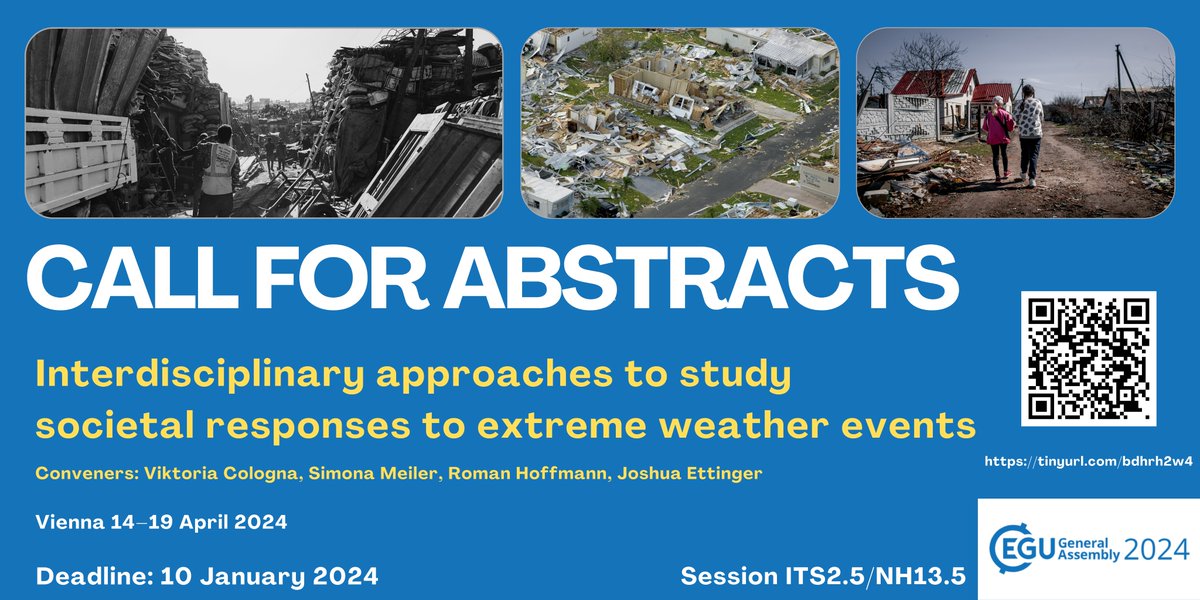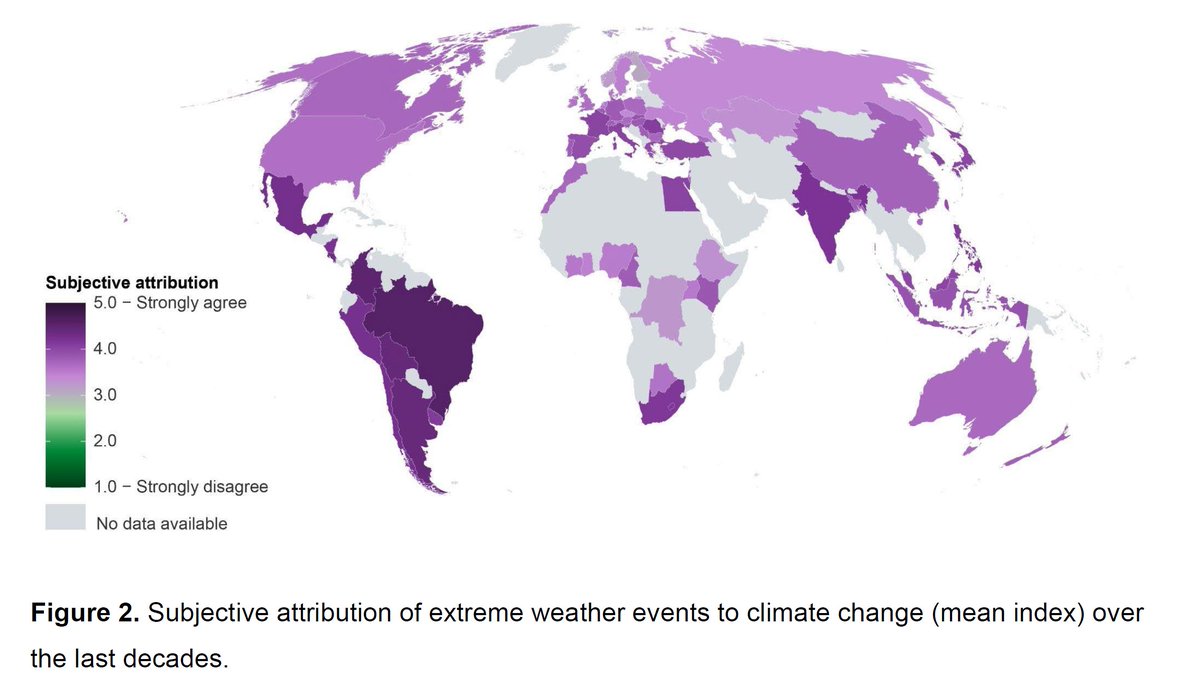
Simona Meiler
@simonameiler
Climate Risk Scientist | Postdoc @Stanford | PhD @ETH_en | 3x Olympian 🏂 | Coffee Enthusiast ☕ | Opinions my own
ID: 320220865
http://www.simonameiler.ch 19-06-2011 14:41:01
1,1K Tweet
775 Followers
597 Following


When natural and social sciences meet. First results from a very cool study on the relationship between historical extreme weather impacts and climate change emotions led by Viktoria Cologna & Niels G. Mede in collaboration with Samuel Lüthi Chahan Kropf 🥵⛈️🌪️🌡️😰

How many people could die due to heat during an extreme summer?🥵🥵 Our study on rapidly increasing risk of summers with very high heat-related mortality levels in 748 locations across the globe was published today in Nature communications Nature Communications nature.com/articles/s4146…


Where extreme weather meets emotions. 🌪️💖 Calling all minds at the crossroads of natural and social sciences - submit your abstracts to #EGU24 European Geosciences Union


Looking for a simple task to start the new year with? Submit an abstract to our European Geosciences Union session: meetingorganizer.copernicus.org/EGU24/session/… We welcome #interdisciplinary contributions that address societal responses to extreme weather events 🌪️🥵🔥⛈️ Viktoria Cologna Dr. Josh Ettinger Roman Hoffmann


Big smiles at the end of our interdisciplinary session European Geosciences Union on "Bridging natural and social sciences to study societal responses to extreme weather events". Thanks to everyone who attended our session and to Amanda Carrico for a fascinating keynote 🙌


Still deciding on your #EGU24 schedule of the day? Come to ITS4.8/CL0.1.16 “Advances in physical climate risk assessment for the financial and insurance sectors” - I’ll be presenting how to quantify and navigate future TC 🌪️risk uncertainties at 9:05 AM meetingorganizer.copernicus.org/EGU24/session/…


This work resulted from an amazing interdisciplinary collaboration of our #TISP survey project and ETH Zürich climate researchers Simona Meiler Chahan Kropf Samuel Lüthi David Bresch – thank you so much!🤝 Here’s the #preprint: osf.io/preprints/osf/…



📢Call for ABSTRACTS for European Geosciences Union Submit your #interdisciplinary contributions that address societal responses to extreme weather events 🌪️🌏🥵⛈️🔥 ➡️Deadline: 15 January 2025 ➡️Conference: 27 April - 2 May 2025, Vienna ➡️tinyurl.com/eejef6vk #EGU25


Impressed by GenCast, the ML-based weather forecasting model nature.com/articles/s41... Curious Google DeepMind - Bc it penalizes deviations from the truth, could a complementary risk-optimized model improve its ability to capture uncertainty and better represent extreme events?

